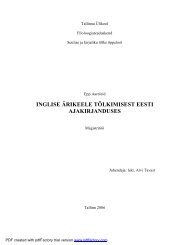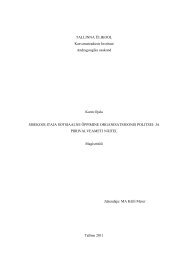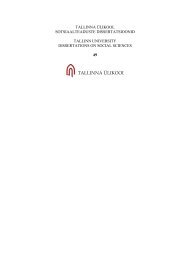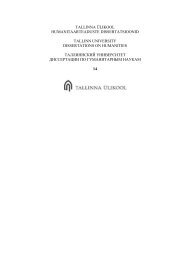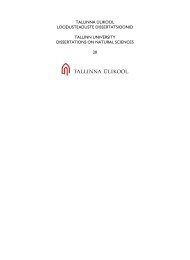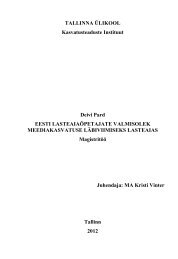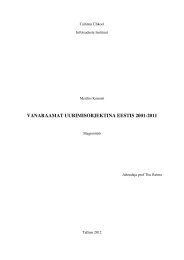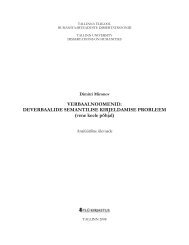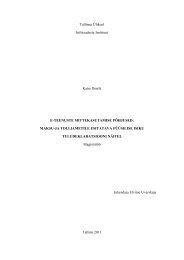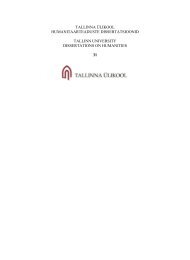Download (1157Kb) - E-Ait
Download (1157Kb) - E-Ait
Download (1157Kb) - E-Ait
You also want an ePaper? Increase the reach of your titles
YUMPU automatically turns print PDFs into web optimized ePapers that Google loves.
values of an organisation where people are free to suggest and make changes to<br />
organisational superstructure. Buckman Laboratory is one example of the most successful<br />
companies in knowledge sharing which implemented this open structure. Bob Buckman, a<br />
retired CEO of the Buckman Laboratory in the interview with Peter A.C. Smith stated that<br />
“Tacit knowledge is the most dynamic asset you have” says Buckman. “When you have<br />
located it, liberated it through effective knowledge sharing, you get huge benefit; improved<br />
innovation, better productivity”. In Buckman‟s case, during the early 1990‟s this led to an<br />
increase in the organisation‟s revenue of almost 1,000 percent and their track record since<br />
then has continued to show strong progress (Smith, 2005, p.529).<br />
Knowledge sharing is one way to help the society have the equal share of what the<br />
environment has to offer. Julian Cribb and Tjempaka Sari Hartomo in “sharing knowledge”<br />
put forward the view that;<br />
“at the end of the century which yielded more wealth, more discoveries and more<br />
technologies than the previous 70 centuries of civilizations, there were more poor, more<br />
disempowered, more wretched and more excluded, more hungry and diseased than ever.<br />
While it extended lifetimes and brought wealth and privilege for one in ten people, the<br />
greatest burgeoning of human knowledge had failed, on the whole, to deliver anything<br />
approximating a fair sharing of benefits”. According to them, a possible explanation is<br />
that the system that engendered it was shaped, not for sharing, but for exclusion and<br />
domination (Cribb & Hartomo, 2002, p.2).<br />
2.4. Factors affecting knowledge sharing.<br />
Knowledge sharing has never been and will never be easy. For it to succeed, there are a<br />
number of obstacles that need to be addressed. In their totality, we can best discuss them if<br />
we categorise them with respect to their origins. The following review tries to unveil some of<br />
the barriers hindering effective knowledge sharing. It will start by looking at some factors<br />
pertaining to individuals, then organisational factors and wind up the section with<br />
technological factors.<br />
2.4.1. Individual or Human Factors.<br />
This issue of trust is known to be of major concern in successful knowledge sharing. For<br />
knowledge sharing to succeed, individuals need to trust each other. People tend to share with<br />
those in whom they trust. According to Terra and Gordon, sociological and economic<br />
research and experiments repeatedly demonstrate that people tend to have less trust in<br />
18




